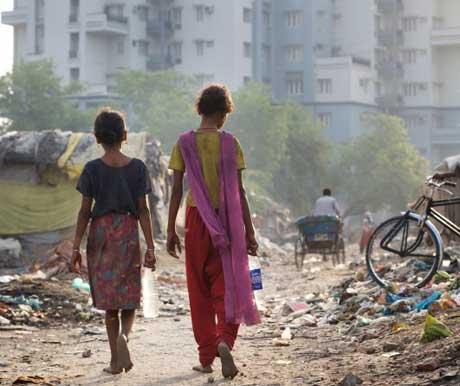
Richest 10% Own 86% of World’s Wealth According to Oxfam Report Author
A new report by the international charity Oxfam has shone a critical light on global inequality, finding that the richest 10 per cent of people own a staggering 86 per cent of the world’s wealth.
Working for the Few was published by the NGO ahead of the World Economic Forum last week in an effort to raise the issue of inequality with political and business leaders at the meeting in Davos, Switzerland.
In an interview, Oxfam policy advisor and co-author of the report, Nick Galasso told Open Media Boston that the research aims “to demonstrate the enormous gap between the rich and everyone else.”
Galasso says “the richest 85 people in the world possess the same amount of wealth as the bottom half of humanity; it’s about $1.7 trillion of wealth.”
Citing Credit Suisse’s annual report, the study says that “10 percent of the global population holds 86 percent of all the assets in the world, while the poorest 70 percent (more than 3 billion adults) hold just 3 percent.”
According to the same source, about 23 per cent, or just over one billion of the world’s adult population – who have between $10,000 and $100,000 in wealth – have just under 14 per cent of the world’s total wealth.
Those with less than $10,000 in wealth, about 68 per cent, or just over three billion of the world’s adult population, have only three per cent of the world’s wealth.
According to Galasso, the report was written using a mixture of original research, and existing research such as Credit Suisse’s annual report.
The key findings of Oxfam’s report show that almost half of the world’s wealth is now owned by just one percent of the population; the wealth of one per cent of the world’s richest people amounts to $110 trillion, which is 65 times the total wealth of the bottom half of the world’s population; seven out of ten people live in countries where economic inequality has increased in the last 30 years; and the richest one per cent increased their share of income in 24 out of 26 countries between 1980 and 2012 (based on available data).
According to the report, the rich are reaping major rewards since the start of the global financial crisis, while the vast majority of people have seen a decline in their livelihoods.
“In the past year,” it says, “210 people have become billionaires, joining a select group of 1,426 individuals with a combined net worth of $5.4 trillion. Corporate profits, chief executive officer (CEO) salaries, and stock exchanges are breaking new records daily, with no signs of slowing down.”
It states further that in the US, “the wealthiest one percent captured 95 percent of post-financial crisis growth between 2009 and 2012, while the bottom 90 percent became poorer.”
As a political scientist, Galasso says he sees “the extreme levels of economic inequality” in the world today as “really a product mostly of politics, and not market forces.”
Besides highlighting inequality, he says the report aims to show how “concentrations of wealth” can “influence, corrupt, capture, buy, takeover, control, democratic processes in ways that government becomes an instrument that works for the wealthy few in contrast to everyone else.
“What we worry about is that such influence of wealth will then produce legislation, and regulatory policies, and really just rule-making that benefits the rich over everyone else; and if this process isn’t abated we worry that it’ll become entrenched,” he continues.
Galasso emphasizes that inequality is a complex issue, and solutions depend on the country in context, however, the report highlights a number of recommendations to those leaders at the World Economic Forum.
It calls on the rich to stop dodging taxes, and using their economic wealth to seek political favors, while saying they should make investments public; to support progressive taxation; to challenge governments to use their tax revenue to provide universal healthcare, education and social protection for citizens; to demand a living wage in all the companies they own or control; and to challenge other economic elites to make these pledges.
Further recommendations call for increased workers’ rights, and removing the barriers to equal rights and opportunities for women.
Galasso says that “there was a lot of lip-service played to inequality this year at Davos, but I think that the impact of our paper in terms of the reaction from the public and from the media really demonstrates that people want change.”

